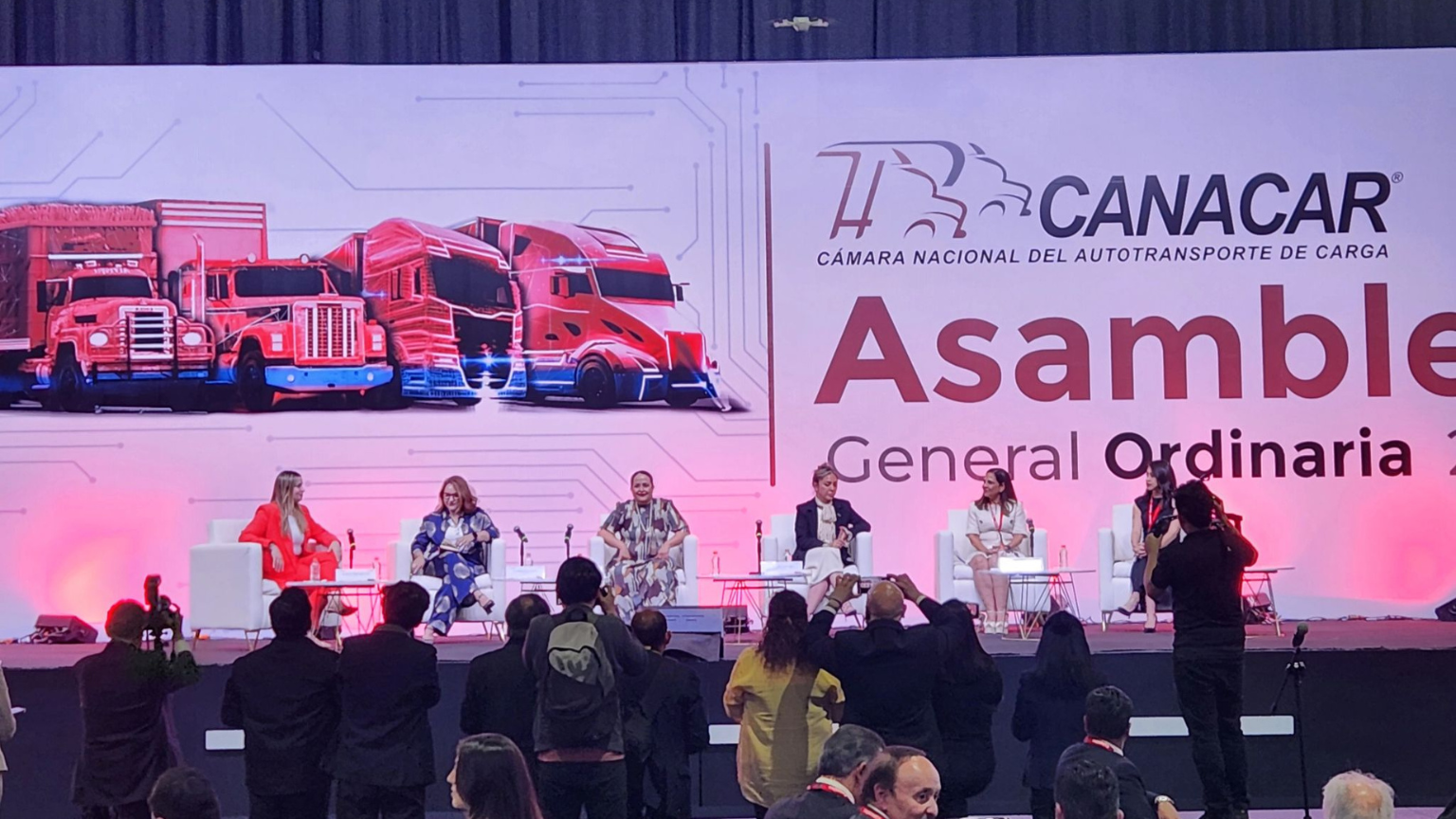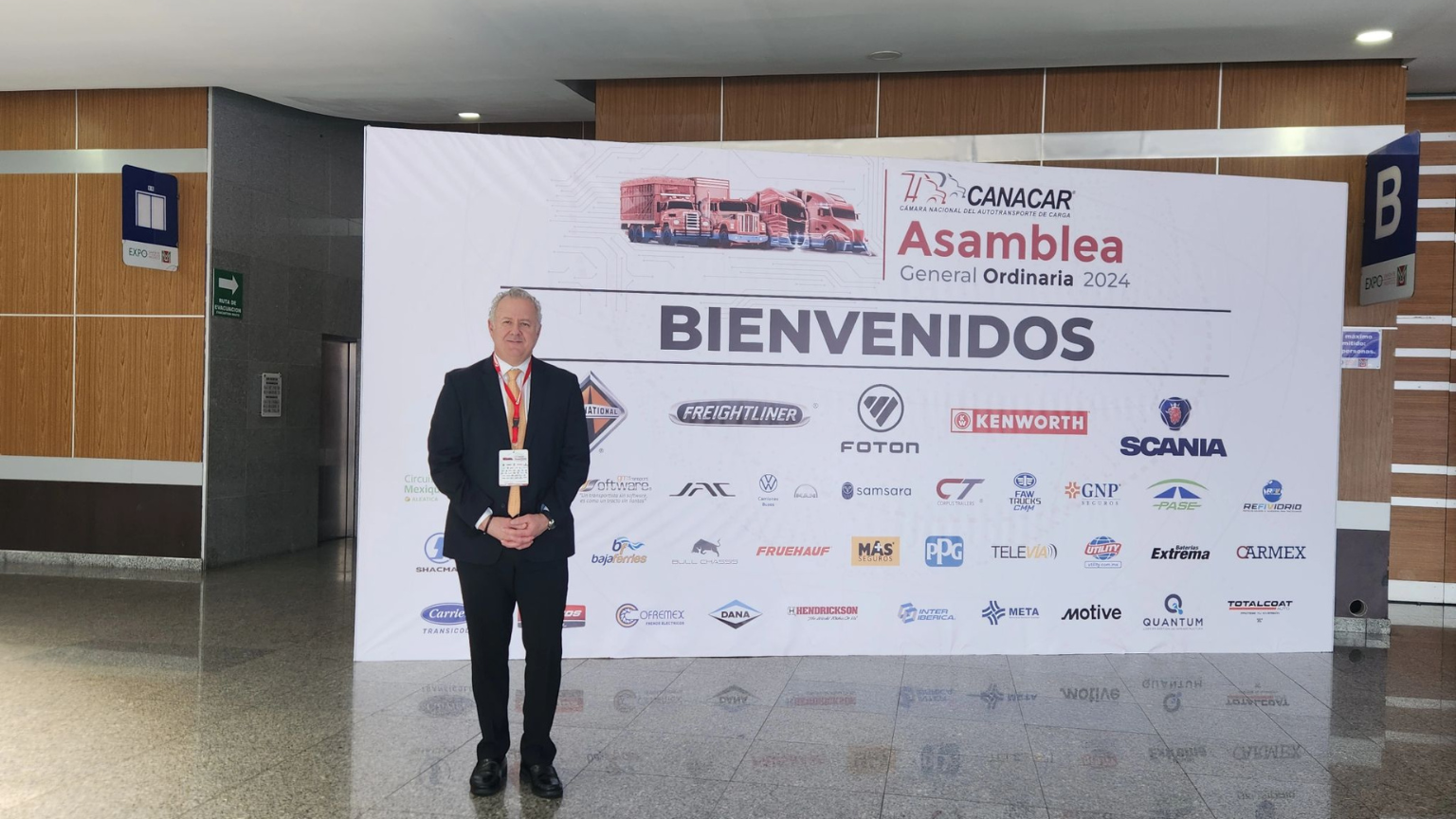IRU member CANACAR discussed the role of women in Mexico’s trucking industry and elected new leaders at its General Assembly.
The Camara Nacional del Autotransporte de Carga’s (CANACAR’s) recent General Assembly featured a timely panel on women in trucking.
CANACAR also re-elected its President, Miguel Ángel Martínez Millán, and National Directors Council.
The Women Transforming Transport panel looked at the challenges and opportunities facing the retention and attraction of current and aspiring women truck drivers.
Mexico currently has 56,000 unfilled truck driver positions (9% of total positions), according to IRU’s latest driver shortage report.
Without significant action, Mexico’s shortage of truck drivers is projected to nearly double and reach 106,000 unfilled positions (14% of total positions) by 2028.
Mexico also has very low share of women truck drivers at just 1.9%. As reported in a recent BBC documentary, there are many women truck drivers breaking through stereotypes and getting behind the wheel. But they need our support.
CANACAR is pursuing a host of measures, including working with the government to open more training centres across the country, as well as to fight and prevent truck robberies and assaults through the implementation of Early Warning Centers to quickly and effectively deploy a response protocol in case of theft.
CANACAR has also created an app, "Paradores Mexico", which allows drivers to check and geolocate parking and resting areas suggested by the Infrastructure Subsecretariat of the Ministry of Communications and Transport.
Additionally, the app offers other functionalities such as a panic button, a map on risky areas and real-time road traffic notifications. A full overview of the solutions implemented by CANACAR are available in IRU's driver shortage report. A full overview of the solutions implemented by CANACAR are available in IRU’s driver shortage report.
IRU looks forward to continuing working with CANACAR in advancing Mexico’s trucking industry for the people, businesses and communities that rely on its vital services.






